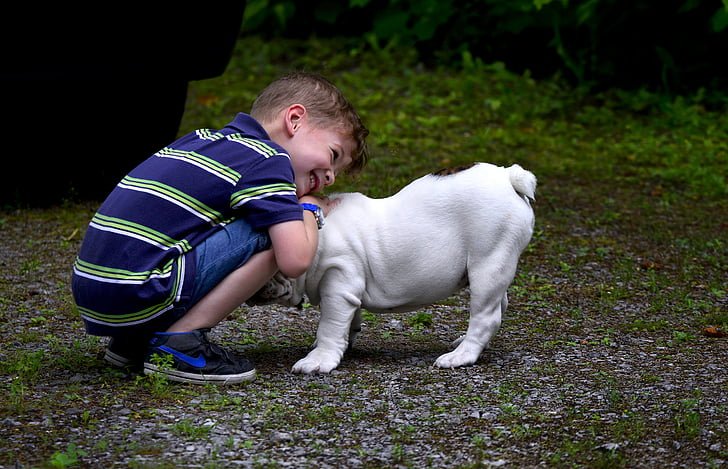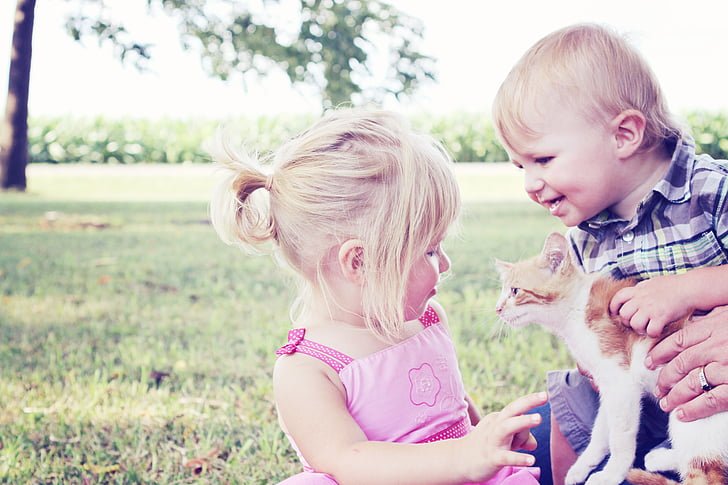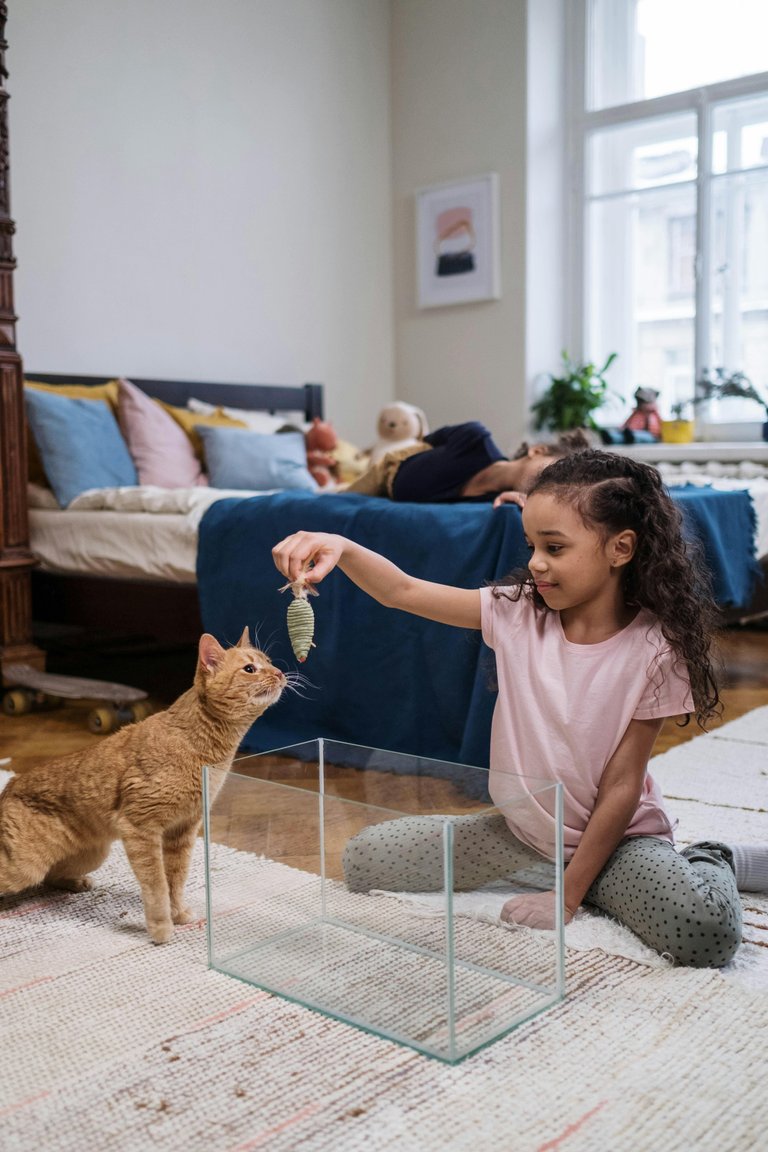I met a guy last month and he was saying confidently that the moment his wife gives birth to a child, he would buy a little puppy on the same date, so the child and the puppy would grow together. He is a lover of pets as much as I am, so it sounded cool to me until he made some statements that made me understand that he didn't know that there are certain dangers that close contact between an infant to a pet could pose.
I took my time to explain some of the associated danger to him, and his wife was appreciative because according to her, this topic has caused serious arguments in their homes countless times, and the fact that I was able to make her husband begin to reason differently just made her day.

source
Dogs as an example of a household pet, have been kept in families for more than 14 centuries, studies and practical living have confirmed the roles of these pets in the lives of owners, generally speaking, pets are an important part of our lives, they come in different sizes and shapes, but no matter the type of animal, they are actually living creatures that can build bonds with humans.
A lot of people of course view their pets as members of their family, just like other family members, the presence of a pet could positively impact the development of a child in areas such as motor skills, and social-emotional skills.
Having a positive relationship with your pet could boost the self-esteem as well as the confidence of a child. Engaging in a simple routine to take care of the pt can produce a sense of responsibility in the child, as well as reduce anxiety and stress.
A healthy pet would naturally have a lot of energy, so it is a great way for your kid to get physical, they could crawl together, go for a swim, or walk together. They also provide lots of new sensory experiences, from touching their fur to watching them move and interact, a whole new sensory world is opened up for your child.

source
The points mentioned above and many others are good reasons why you should consider having a child at home with your child, but there is a place for extreme caution, especially with the presence of an infant.
Remember, the immune system of your child is not strong enough so if there is a tendency for your pet to spread infections, your child will get it first and there are no well-structured inner powers to fight the infections like your own.
Some forms of bacteria, parasites, viruses, and fungi carried by pets can make humans sick either through a scratch or a bite, contact with animal waste, saliva, or feces could also cause danger to humans. Children who are younger than the age of five, pregnant women, and people with weak immune systems have a higher chance of getting very sick from these infections.
One of the major considerations parents have to make is the health and age of their kid before even choosing to get a pet. For instance, when a child has HIV and has gone through chemotherapy or steroid medicines, such a child shouldn't be around cats and dogs who have ringworm infections.
When a child has eczema, he should avoid aquariums, and this means that amphibians and reptiles may not be an ideal good enough for families who have infants, little children, or any immunocompromised family member.

source
Pets like dogs and cats can carry infections like;
Tick-borne diseases can happen when ticks get attached to outdoor pets, tick prevention products applied on pets will guarantee their safety and disposal of ticks as soon as possible.
Toxocara is a type of roundworm and is a zoonotic parasite that can be acquired from soil that has been contaminated with the feces of cats and dogs, they pose serious risks to infants and little children.
When a child touches an infected cat or dog, he can get ringworm, causing a dry, scaly area with a clear center and red bumpy border.
Campylobacter infection, a bacterial infection causes belly pain, fever, and diarrhea.
Rabies is a serious illness that is now rare thankfully due to the widespread vaccination now made available.
Toxoplasmosis, an infection from a parasite found in the poop of a cat causes no symptoms in healthy people, but could cause serious problems for infants and pregnant mothers, it is advisable for pregnant women and people with a weak immune system not to clean litter boxes.
Even when you have your pet birds kept in a cage, they still can spread these diseases;
Psittacosis: Also known as parrot fever is a type of bacteria that can infect pet birds, anyone who has contact with their poop or the dust that builds up in their cages can have psittacosis. They have symptoms like; high fever, cough, and headache.
Cryptococcosis, is a yeast found in the droppings of birds, especially from pigeons, it could cause meningitis and pneumonia in people who have a weak immune system especially those who have HIV/AIDS.
The fear of these mentioned diseases shouldn't make us completely scared of owning a pet, the most important thing is to nsure safety precaution while at it. These are things you should do to protect your kid and other member of your family while you own a more adored pet.
After you must have made a choice of pet, take it for vaccination, then ensure regular checkups and routine vaccinations for your pet. THis will help you maintain the health of your pet and lower chances of infection to your family.
You must teach your adult kids to wash their hands after playing with the family pet, after handling their food, cage, tank or litter box. Put on gloves while you clean up their cage as a parent and ensur that your little ones have no business cleaning up the cage of the pets.
Always remind your kids not to kiss pets as serious infection could be spread through saliva.
Your pregnant wife should avoid litter boxes and cages of your pet, so should your infant. Do not permit close contact between your infant and pets.
Ensure the home of your pet is kept clean and free from waste, avoid strange animals that look sick and I don't think it is ever safe to adopt a wild animal (my opinion though).
When you expose your kids to your pets, make sure you watch them closely all through the period.
References.
journals.asm.org/doi/10.1128/microbiolspec.io
uspharmacist.com/article/zoonotic
pathways.org/benefits-of-pets/
